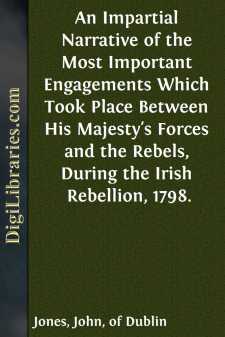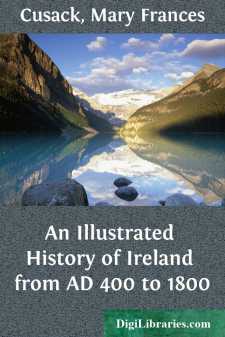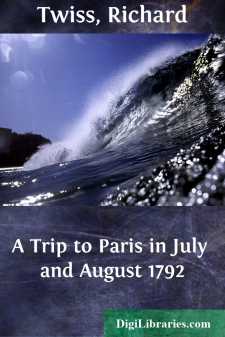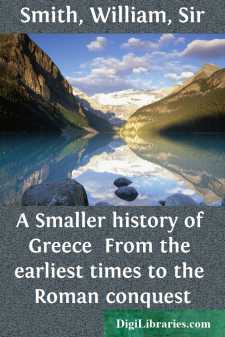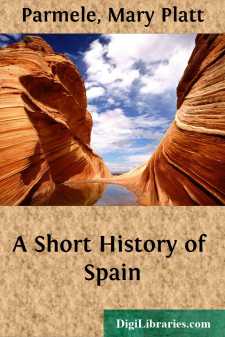History
- Africa 30
- Americas (North Central South West Indies) 50
- Ancient 68
- Asia 58
- Australia & New Zealand 8
- Canada 41
- Caribbean & West Indies 1
- Civilization 20
- Eastern Europe 12
- Europe
- Expeditions & Discoveries 60
- General 77
- Historical Geography 1
- Jewish 9
- Latin America 3
- Medieval 8
- Middle East 13
- Military 248
- Revolutionary 8
- Study & Teaching 5
- United States 353
- Western Europe 56
- World 13
Europe Books
Sort by:
INTRODUCTION Diderot, writing to the Princess Dashkoff in 1771, thus analysed the spirit of his century: Chaque siècle a son esprit qui le caractérise. L'esprit du nôtre semble être celui de la liberté. La première attaque contre la superstition a été violente, sans mesure. Une fois que les hommes ont osé d'une manière quelconque donner l'assaut à la barrière de la religion,...
more...
by:
John Davenport
ESSAY I. REMARKS UPON THE SYMBOLS OF THEREPRODUCTIVE POWERS. ROM the investigations and researches of the learned, there appears to be no doubt but that the most ancient of all superstitions was that in which Nature was contemplated chiefly under the attribute or property of fecundity; the symbols of the reproductive power being those under which its prolific potencies were exhibited. It is not because...
more...
PREFACE In introducing the student to the history of the development of European culture, the problem of proportion has seemed to me, throughout, the fundamental one. Consequently I have endeavored not only to state matters truly and clearly but also to bring the narrative into harmony with the most recent conceptions of the relative importance of past events and institutions. It has seemed best, in an...
more...
by:
John Jones
CLONARD is situate about Twenty five miles from Dublin on the Western road leading to Mullingar. Tho' constituted a post town, it is a very small village, consisting of an Inn and a few thatched houses; but from its situation being on the confines of two counties, Kildare and Meath, and having a bridge across the river Boyne, which opens a communication from Dublin to Westmeath, and from thence to...
more...
CHAPTER I Celtic Literature—Antiquity of our Annals—Moore—How we should estimate Tradition—The Materials for Irish History—List of the Lost Books—The Cuilmenn—The Saltair of Tara, &c.—The Saltair of Cashel—Important MSS. preserved in Trinity College—By the Royal Irish Academy—In Belgium. he study of Celtic literature, which is daily becoming of increased importance to the...
more...
by:
William Hutton
AN HISTORY &c. Some account of the derivation of the name of Birmingham. The word Birmingham, is too remote for certain explanation. During the last four centuries it has been variously written Brumwycheham, Bermyngeham, Bromwycham, Burmyngham, Bermyngham, Byrmyngham, and Birmingham; nay, even so late as the seventeenth century it was written Bromicham. Dugdale supposes the name to have been given...
more...
by:
Richard Twiss
ROAD FROM CALAIS. UNNECESSARY PASSPORTS. CHANTILLY. THE following excursion was undertaken for several reasons: the first of which was, that though I had been many times in Paris before, yet I had not once been there since the Revolution, and I was desirous of seeing how far a residence of a few years in France might be practicable and agreeable; secondly, a Counter-Revolution, or, at least, some...
more...
The present work is intended for such students as have already an elementary knowledge of the main facts of English history, and aims at meeting their needs by the use of plain language on the one hand, and by the avoidance, on the other hand, of that multiplicity of details which is apt to overburden the memory. At the close of the book I have treated the last eleven years, 1874 to 1885, in a manner...
more...
by:
William Smith
GEOGRAPHY OF GREECE. Greece is the southern portion of a great peninsula of Europe, washed on three sides by the Mediterranean Sea. It is bounded on the north by the Cambunian mountains, which separate it from Macedonia. It extends from the fortieth degree of latitude to the thirty-sixth, its greatest length being not more than 250 English miles, and its greatest breadth only 180. Its surface is...
more...
CHAPTER I. No name is more fraught with picturesque and romantic interest than that of the "Spanish Peninsula." After finishing this rare bit of handiwork nature seems to have thrown up a great ragged wall, stretching from sea to sea, to protect it; and the Pyrenees have stood for ages a frowning barrier, descending toward France on the northern side from gradually decreasing heights—but on...
more...





